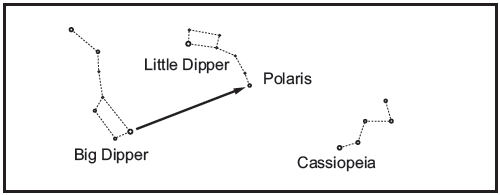Glossary | Telescopes | GoTo control | Polar Alignment | Easy Polar Alignment
Easy Polar Alignment

Equatorial telescope mounts must be set up so that one axis of the mount is parallel to the Earth's axis. Once the two axes are parallel then, using a motor, the mount can ensure that the telescope continuously tracks the movement of the night sky.
In the Northern Hemisphere, this telescope alignment can be carried out quite simply using Polaris, the pole star. Due to an accident of nature, this star marks the point at which the Earth's axis penetrates the sky canopy. Polaris can be directly sighted using a polar finder, which can be built into in the axis of the mount.
For astrophotography, however, this alignment is not accurate enough. The view through the polar finder is rather uncomfortable, and furthermore, Polaris may not be visible at all for balcony or garden astronomers.
The computer control of this telescope allows two very elegant methods for the correct alignment of the mount:
One-star polar alignment: The telescope is roughly positioned and the GoTo computer control is initialised. Then simply move the telescope to the home position. The mount will now try to align with Polaris and will roughly achieve this. Simply fine-tune the alignment using the mechanical adjustments of the axes, and you’re done!
Two-star polar alignment: With the method described above, you need a clear view of Polaris. If this is not the case, you can also perform the alignment by pointing at two stars in succession that are visible from your location.
